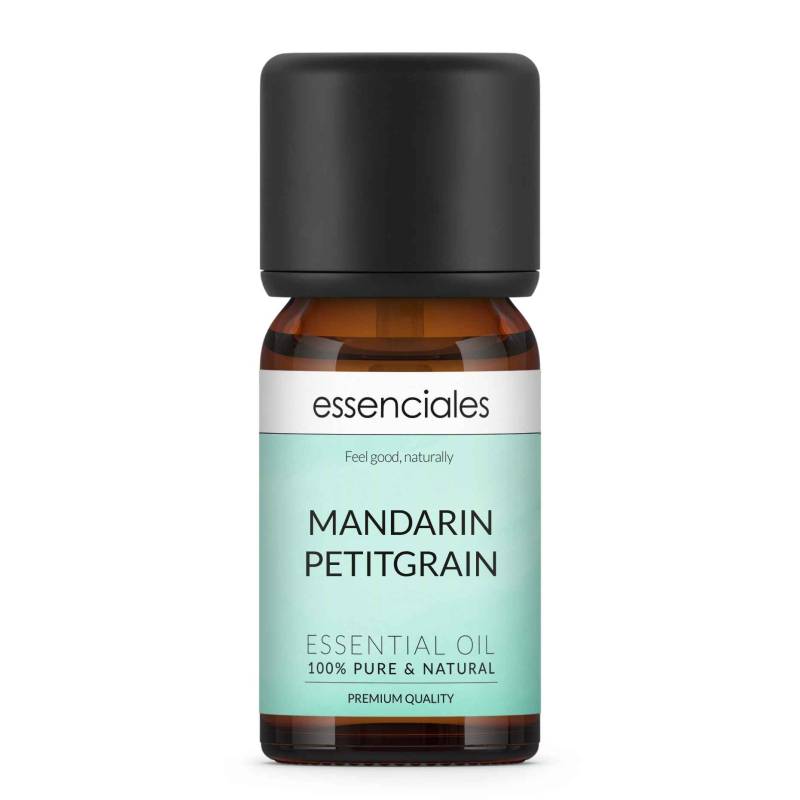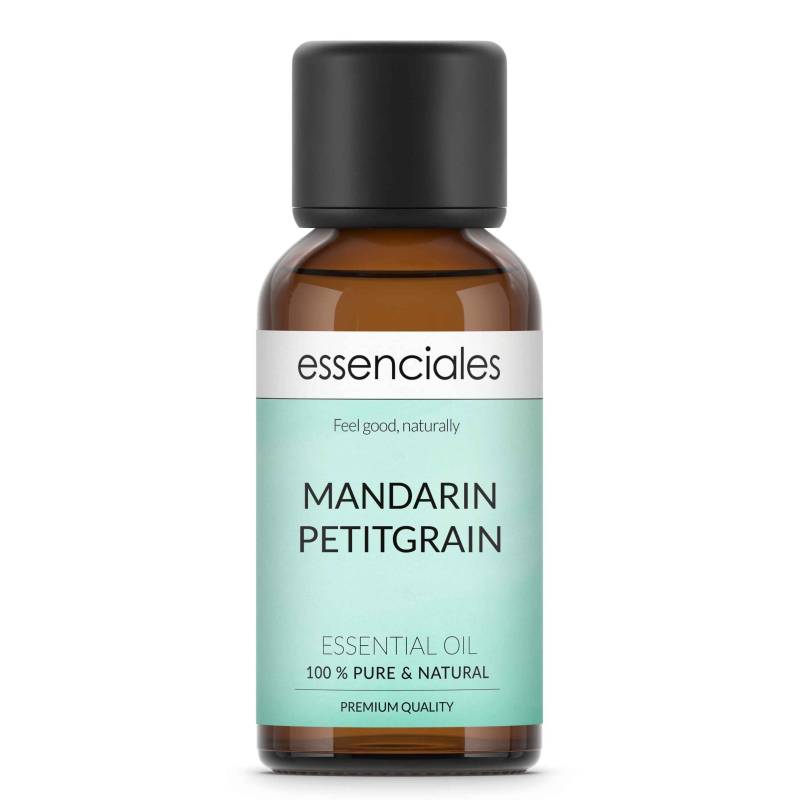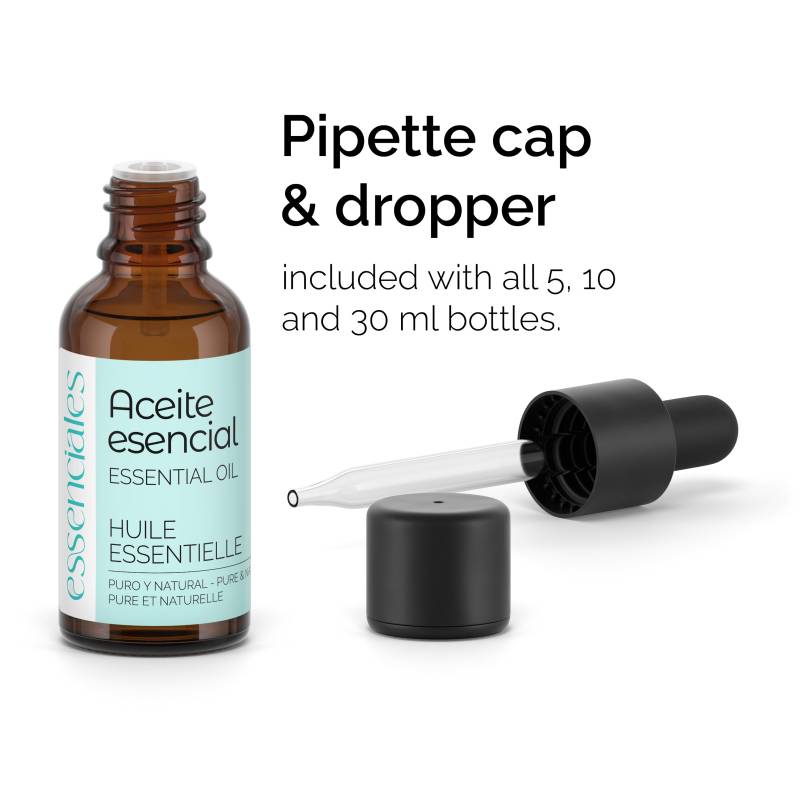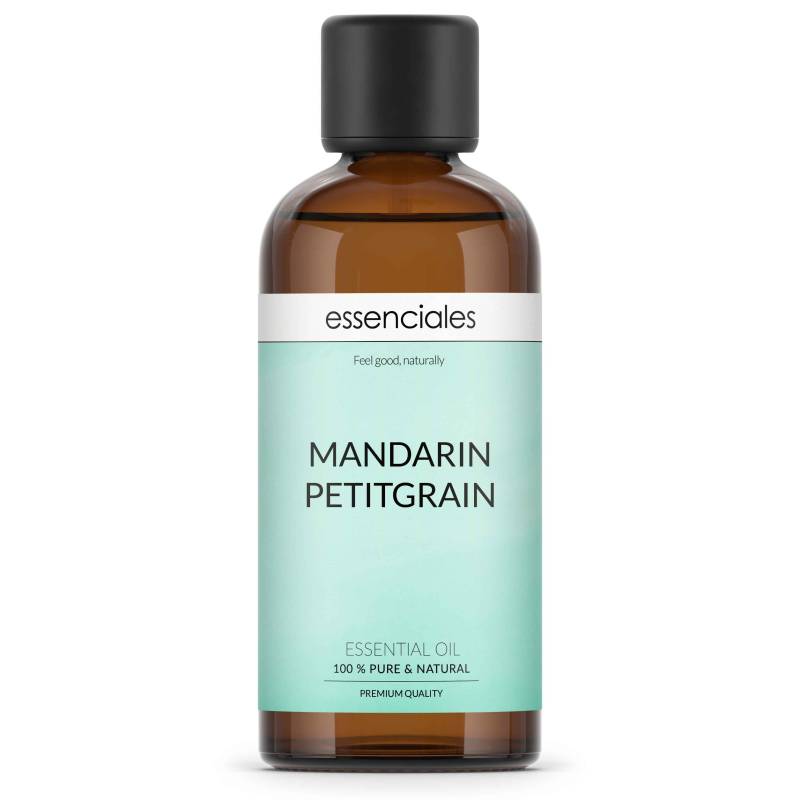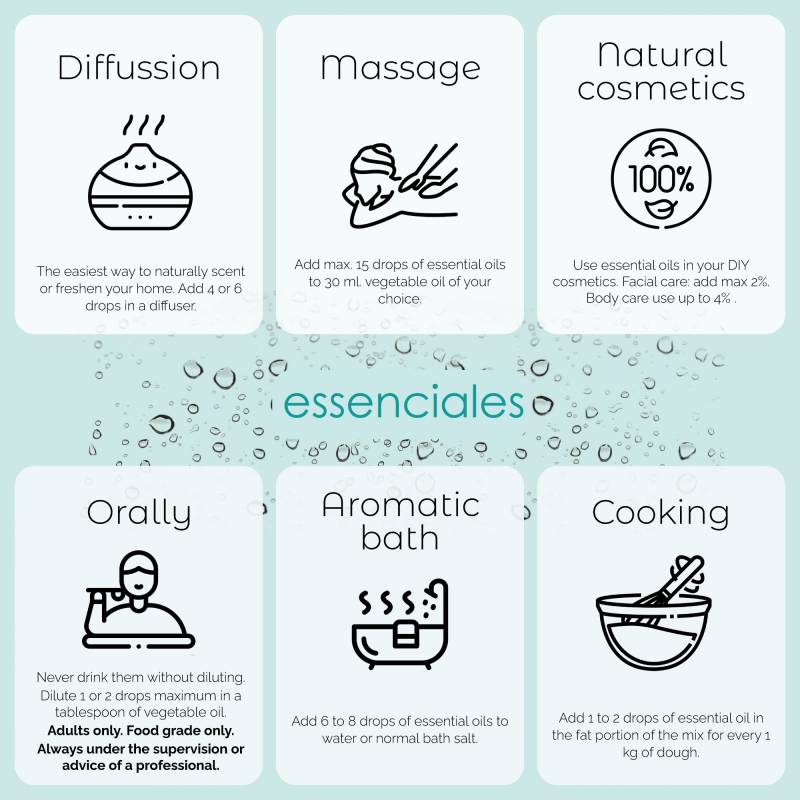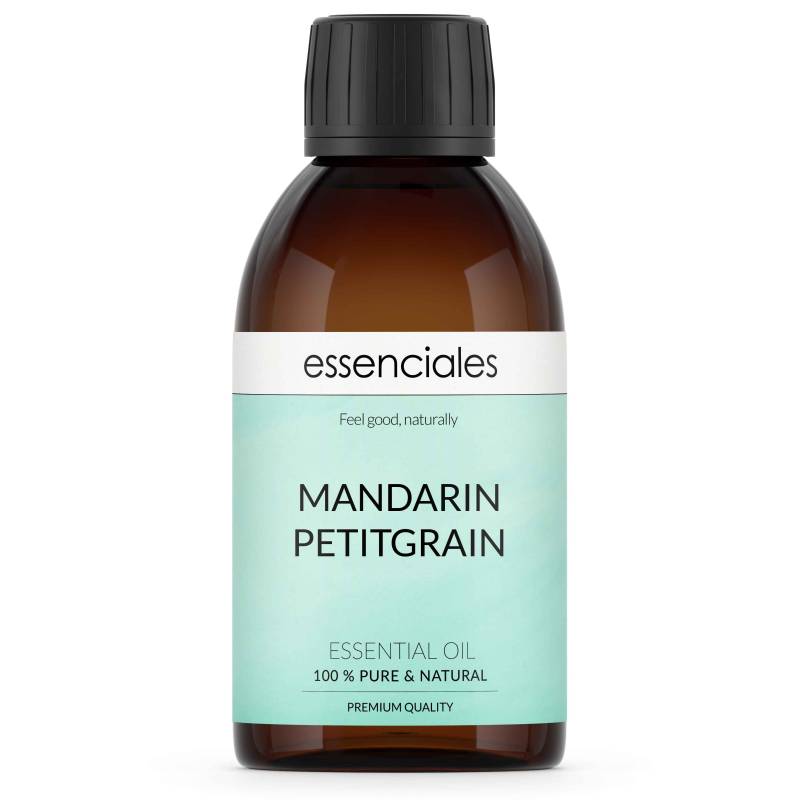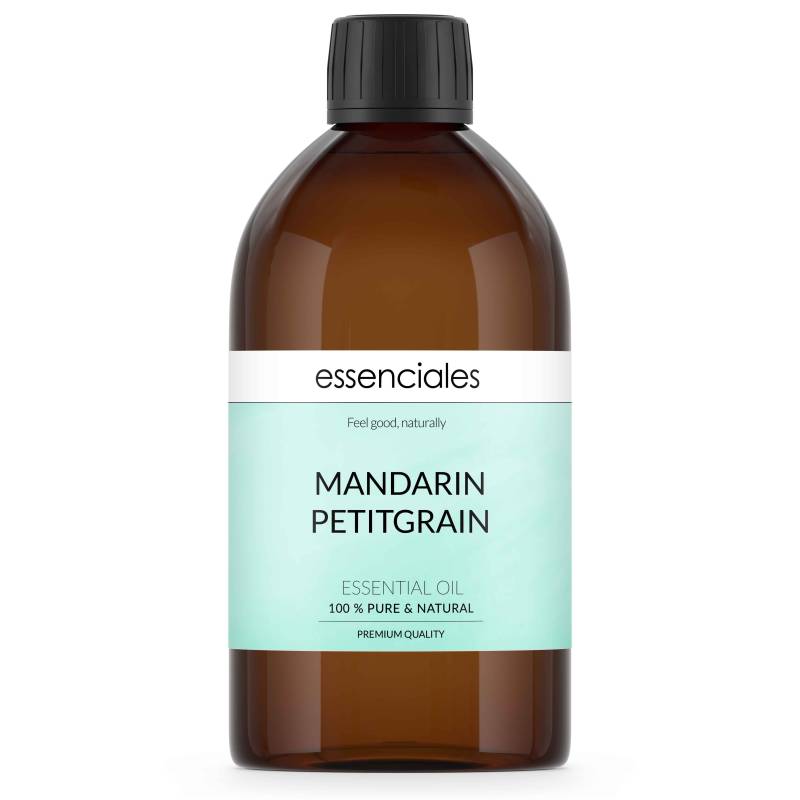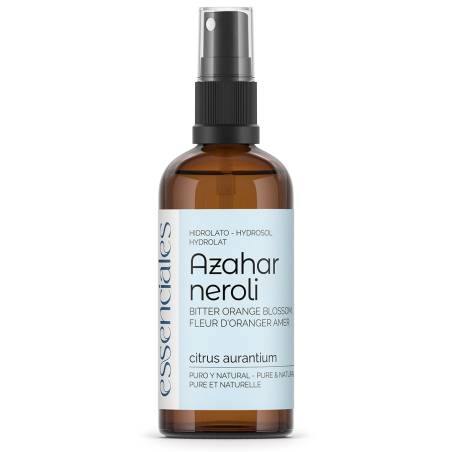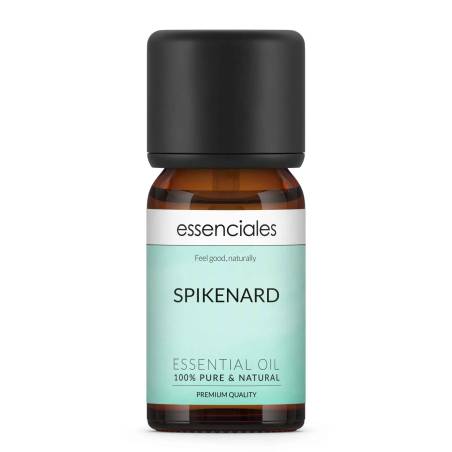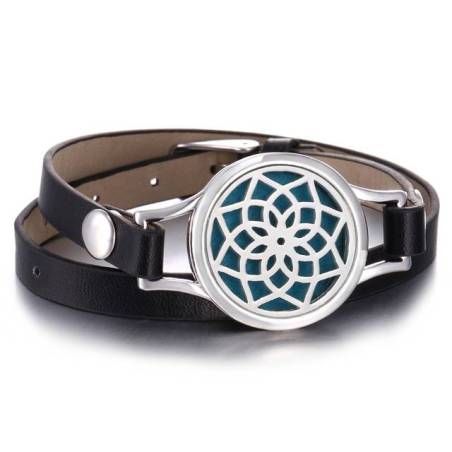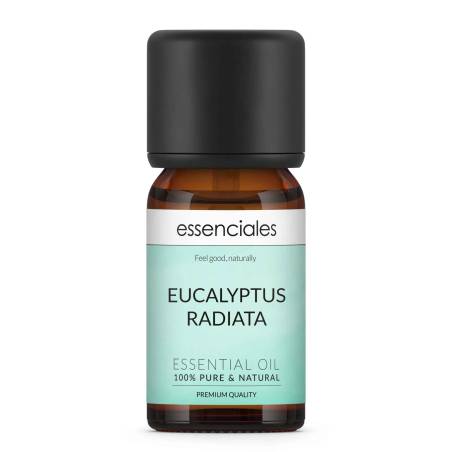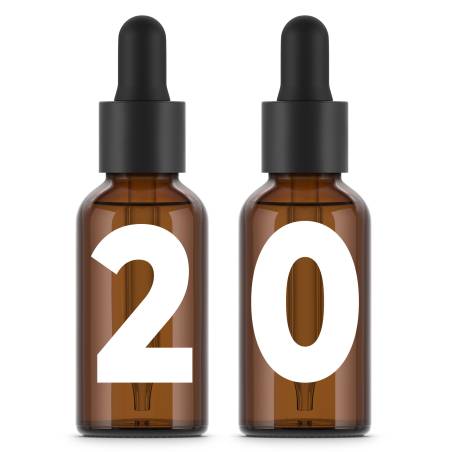🍃 Natural Essential Oil of Mandarin Petitgrain – Citrus reticulata
While the essence extracted from mandarin peel is a well-known ally of the nervous system, the essential oil distilled from the leaves is considered one of the most powerful calming oils in aromatherapy. Its main molecule, N-methyl anthranilate of methyl, is unique to this oil in such high concentrations, giving it antidepressant properties and wide use in perfumery and food aromas. Its fragrance is surprisingly sweet and soft, very different from mandarin fruit itself.
✨ Main Properties
- 💫 Antispasmodic: Relieves muscular and digestive spasms.
- 🛡️ Antiseptic: Eliminates pathogens from the environment.
- 🦠 Bactericidal: Acts against harmful bacteria.
- 😌 Nervous tonic: Helps restore nervous system balance.
- 🥗 Digestive: Improves stress-related digestive disorders.
🌿 Therapeutic Uses
- Digestive system: Flatulence, dyspepsia.
- Skin: Acne, oily scalp, seborrhea.
- Nervous system: Stress, anxiety, insomnia, panic.
- Muscles: Nervous-origin contractions, spasms, pain.
🛠️ Practical Recipes
Massage
➤ Muscular relaxation:
3–4 drops petitgrain + 3–4 drops lavender + 2 drops Roman chamomile in 1 tsp. grapeseed oil. Massage affected area.
➤ Nervous system balance:
3–4 drops petitgrain in 1 tsp. almond oil. Massage along the spine and shoulders, 2x daily.
➤ Oily skin:
5 drops petitgrain + 5 drops rosemary in 30 ml jojoba oil. Apply as night serum.
Diffusion
➤ Relax the atmosphere & improve communication:
4 drops petitgrain + 2 drops ylang-ylang + 3 drops bergamot in an ultrasonic diffuser (100 ml water).
Cosmetic Use
➤ Serum for oily/acne-prone skin:
2–3 drops in 1 tsp. jojoba oil as astringent, sebum-regulating mix.
💆 Cosmetic Recipes
Revitalizing Facial Toner (combination skin)
50 ml rose water + 1 tbsp. vegetable glycerin + 10 drops petitgrain + 5 drops geranium + 5 drops vitamin E. Spray on clean face AM & PM.
Moisturizing & Relaxing Body Cream
100 ml shea butter + 50 ml jojoba oil + 15 drops petitgrain + 5 drops lavender + 5 drops sweet orange. Apply after shower for lasting hydration.
Nourishing Hair Mask
2 tbsp. coconut oil + 1 tbsp. argan oil + 10 drops petitgrain + 5 drops ylang-ylang. Leave 30–60 min, then wash as usual.
🌸 Blends Well With
- Bergamot
- Ylang-Ylang
- Cinnamon bark
- Ginger
- Mandarin
- Ravintsara
- Roman Chamomile
- Almond
- Jojoba
💧 Recommended Dilutions
- Adults: up to 2 % topical use.
- Children (6+ years): up to 0.25 %.
⚠️ Important: Avoid use in children under 3 years. Always dilute essential oils properly before application.
📖 Expert Note
“Mandarin petitgrain has a sweet, candy-like citrus scent. Behind this sweetness lies a powerful property to restore nervous balance, even in nervous shock. It’s also versatile in ambient aromatization and perfumery, making it a useful oil for many situations.”
– Luis Rodero, Aromatherapist
🧾 Identification
- Botanical name: Citrus reticulata
- Origin: Spain
- Extraction method: Steam distillation
- Part used: Leaves
- INCI: Citrus Reticulata Leaf Oil
⚠️ Safety
- Not for use during pregnancy.
- Keep out of reach of children.
- Topical use: only diluted.
- Diffuser: safe.
- Phototoxic: yes.
- Sensitizing: no.
- Irritant: no.
- Natural allergens: limonene, linalool, citral.
📦 Storage
Store in a cool, dry place, protected from light. Prevent oxidation to preserve its qualities.
ℹ️ Important
The information provided by Essenciales is for educational purposes only and does not constitute medical advice. The International Federation of Aromatherapists does not recommend ingestion of essential oils except under qualified medical supervision. Always dilute properly. In case of pregnancy, epilepsy, liver insufficiency or medical conditions, use only under professional guidance.
